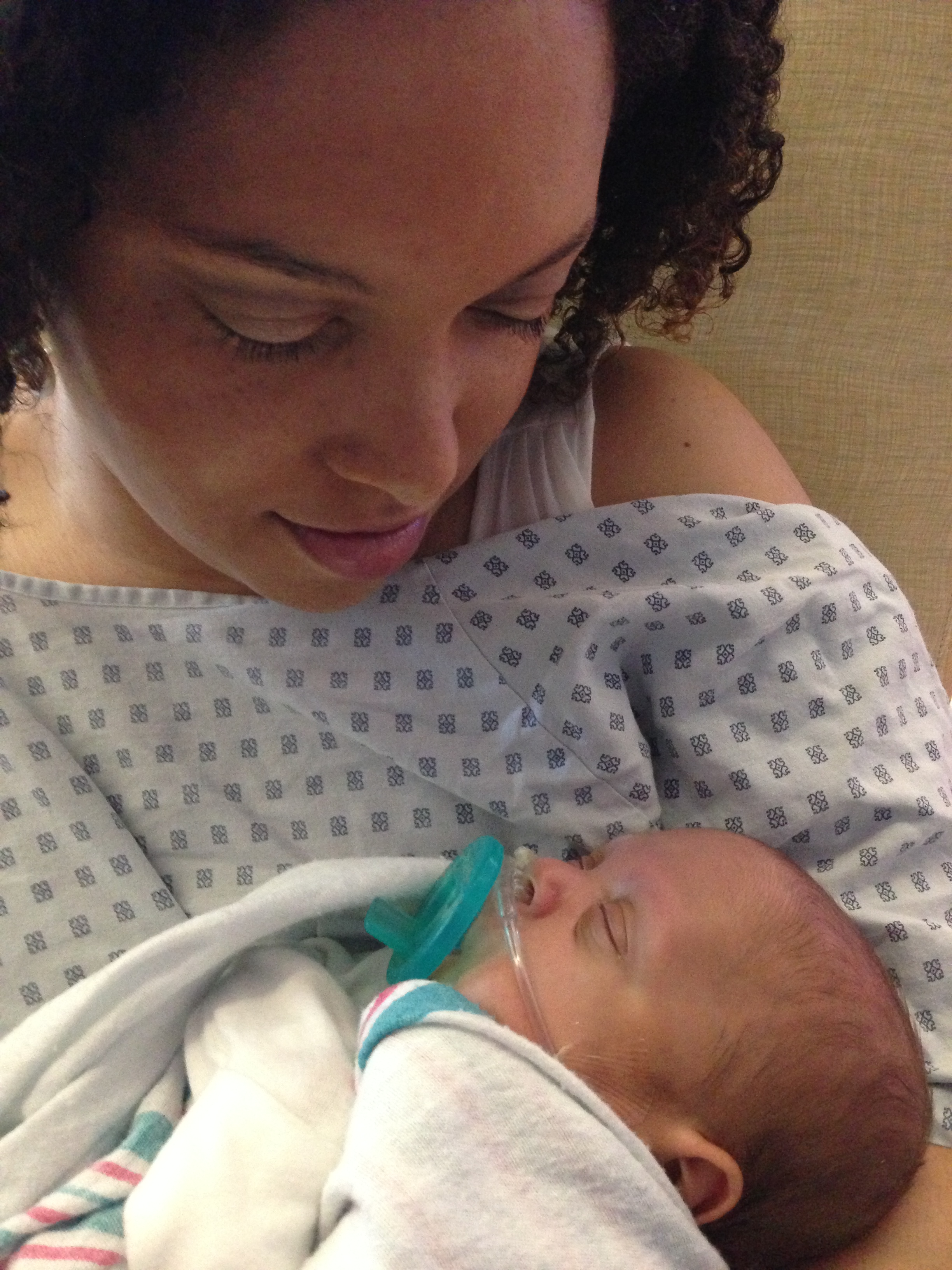When a woman gives birth to a child prematurely, it’s often the result of a sudden and unexpected pregnancy complication, leaving parents confused and overwhelmed with the emotional ups and downs that come with having a preemie. It’s estimated that the cause of at least half of all premature births is unknown, which makes preventing prematurity a challenge. Most of the time, after a preemie is born, the tiny baby is handed over to team of doctors and nurses who provide intensive care around the clock until the baby is discharged to come home. During this time, many parents feel helpless, believing that there is little they can do to care for and nurture their newborn child.
In actuality, there are many things a parent can do to help their preemie even if the baby is weak and confined to an incubator. Although the NICU doctors and nurses may be the primary caregivers to the baby during this time, parents still have a critical role in supporting their baby’s health. Here are a few specific things parents can do to help their babies along in the journey towards coming home:
Provide breast milk early
While a baby is in the NICU, particularly if the baby is on a ventilator or in an incubator, breastfeeding is difficult and many times impossible. However, making breast milk available for a preemie as early as possible is one of the best actions a mother can take to help her baby become healthy. Ideally, if her baby is unable to breastfeed, a mother should begin pumping within an hour of birth to stimulate milk production and give her baby all the nutritional and anti-infection benefits of the early milk. Research shows that premature babies fed breast milk early in life have a lower risk of infection and higher cognitive function as toddlers. While fathers are not able to provide breast milk to the baby directly, they can still help this process by supporting the mother and encouraging her to continue pumping until the baby is able to nurse.
It’s no secret that pumping is hard. Being attached to a machine is impersonal and lacks the physical connection with the baby that a mother gets through breastfeeding. Plus, pumping is time-consuming and tedious. But, it’s really the best thing a new mother can do for her premature baby. Moms who provide breast milk for their preemies are doing something important, something nobody else can do for their little ones.
Talk to your baby
Simply hearing their parents talk and sing to them can have positive effects on preemies. A recent study shows that premature babies exposed to higher word counts while in the hospital have higher cognitive and language abilities later in life. Another study found that hearing their mother’s voice helps premature babies develop faster and have shorter hospital stays. So, just by visiting and talking to your baby in the hospital as much as possible can improve the baby’s health, both in the hospital and later at home.
Provide the healing power of your touch
Babies in general, and preemies in particular, do a lot better when they are held and touched frequently. Skin-to-skin contact between mother and newborn keeps the baby warm, improves circulation and promotes breastfeeding. It also appears to improve cognitive function in premature babies throughout childhood. Even if the baby is in an incubator and can’t be held, simply cupping your hands and placing them gently on the baby’s feet and head can help your baby feel calm and secure. Once the baby comes home, parents can continue to provide the benefits of their touch through baby massage. One study found that massaging preemies regularly may boost their immune system and help them gain weight more quickly.
Prepare the home for baby’s arrival
If your preemie is stable and progressing well in the hospital, then it’s time to go out and get the crib, set up the baby’s room and stock up on diapers. Not only does preparing the home give parents a much needed respite from the stress of the NICU, it gives parents a sense of hope that their baby is indeed coming home. As new entrants into the world, babies are more sensitive to their environments than adults. Studies show that babies sense the state of mind of those around them. A positive attitude, even in the face of what is an extremely stressful situation, can go a long way towards helping the smallest babies find the strength and the will to get better.


No Comments